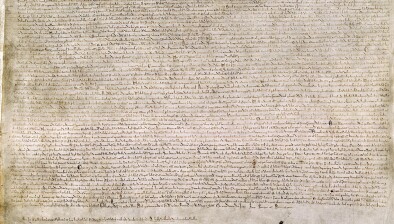High Court: Custodial sentence cannot be activated for accused man after suspended sentence period lapsed

Killian Flood BL
The High Court has allowed a judicial review application for a man who challenged the State’s entitlement to return him before the Circuit Court for offences which occurred during a suspended sentence period.

About this case:
- Citation:[2021] IEHC 347
- Judgment:
- Court:High Court
- Judge:Mr Justice Garrett Simons
The accused had previously been convicted of drugs offences and was given a three-year suspended sentence. However, the suspended period lapsed before he could be convicted of the subsequent offences.
The court ruled that the accused had been released of his obligation to serve a suspended sentence on the basis of the Circuit Court order. The court further considered whether the Criminal Justice (Suspended Sentences of Imprisonment) Act 2017 affected the imposition of the suspended sentence in the case.
Background
The applicant, Mr Jakub Kedzierski, had previously been convicted of a drugs offence in the Circuit Court in July 2015. He received a two-year sentence, which was suspended for three years. The applicant agreed to keep the peace and be of good behaviour during this time. Further, the order recorded that “he will come up if called on to do so at any time within said period of 3 years to serve the sentence imposed.”
Accordingly, the suspended sentence period was due to lapse in July 2018. However, in February 2017, Mr Kedzierski was charged with several offences under the Misuse of Drugs Act 1977. The trial only occurred in February 2019, where he was convicted of one offence and fined €1000.
As such, the offence had been committed during the suspended period but the accused was only convicted after the period had lapsed.
In January 2019, certain legislative amendments to the operation of suspended sentences came into effect pursuant to the Criminal Justice (Suspended Sentences of Imprisonment) Act 2017. The 2017 Act amended the provisions of sections 99 of the Criminal Justice Act 2006, stating 1) a relevant suspended period included an additional 12-month period and 2) proceedings only needed to be instituted during this extended period for an accused to be brought back to serve a suspended sentence.
In light of these amendments, the accused issued judicial review proceedings seeking declarations that his obligation to serve the suspended sentence had lapsed. He relied on the terms of the Circuit Court order and said he had achieved immunity under the pre-2019 legislation. Further, he argued that the legislative amendments could not have retrospective effect, having come into effect after the period had lapsed.
High Court
Delivering judgment in the case, Mr Justice Garrett Simons began by outlining the previous legal context for the amendments. The court considered the earlier decision in Moore v. Director of Public Prosecutions [2016] IEHC 244, which declared that sections 99 (9) and (10) of the 2006 Act were unconstitutional. This was so because the sequence of remanding an accused person to the original sentencing court after a second offence was committed did not allow for the possibility that the second offence could be overturned on appeal.
The delay in addressing this unconstitutionality by the legislature meant that there was a “significant lacuna” in the legislative scheme for two and a half years, which resulted in the present case.
The court identified the first substantive issue as being the effect of the original order for a suspended sentence. The court held that the Circuit Court order was final and conclusive. Accordingly, it was unaffected by the legislative amendments which occurred after the three-year period expired. This meant that the suspended sentence ended in July 2018 and was no longer in effect.
The court went on to consider whether the alternative procedure for revoking a suspended sentence under section 99(17) of the Act could be invoked to revive the suspended sentence. The court held that this alternative revocation procedure was also subject to the three-year temporal limitation. The DPP had argued that no temporal limitation was specifically mentioned under section 99(17) and that the section could therefore apply beyond the three-year period. However, the court said that the logical end of that argument was that there was no limitation at all to serving a suspended sentence.
Finally, the court considered whether the post-2019 legislation could apply retrospectively to the accused. The court noted that, in Director of Public Prosecutions v. Kirwan [2019] IECA 176, it had been held that the presumption against retrospective effect did not apply where the amendments were procedural rather than substantive. It was also held that the constitutional issue in Moore had been remedied by reversing the sequences in which offences were to be imposed.
However, the court held that there would be a loss of a vested right by the accused if the 2019 legislation revived the previously expired suspended sentence (Director of Public Prosecutions v. Devins [2012] IESC 7). There was nothing in the legislation which suggested an intention to affect people who had previously been released from a suspended sentence, the court said.
Conclusion
As a result of the court’s findings, the application for judicial review was allowed. The court emphasised that the judgment was confined to interpreting the amending legislation. No decision was made on whether it was permissible for the Oireachtas to introduce legislation which could have applied a suspended sentence on the applicant.









